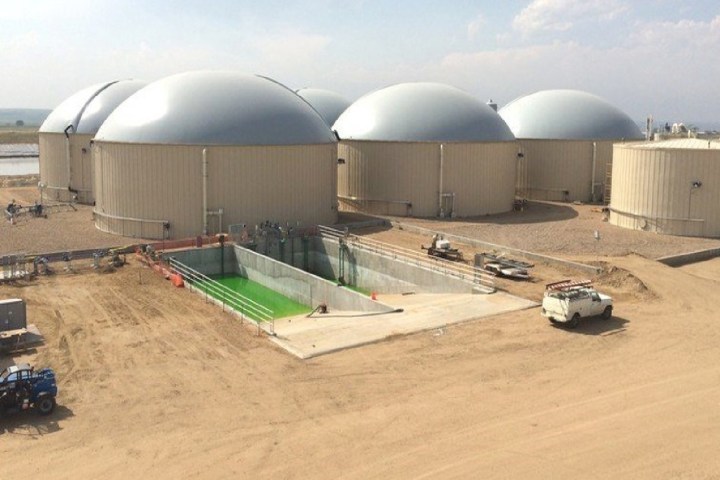
With that problem in mind, chemical engineers from Michigan Technological University have set out to explore an alternative method, and to demonstrate not just how well it works, but what adopting it could mean for the environment. The solution they chose is something called anaerobic digestion (AD), referring to composting organics without air. It involves taking piles of manure and placing it in large covered tanks to be broken down by hungry bacteria. Not only does it mean that methane is not longer pumped out into the air; it also produces a liquid digestate end product which could be used for fertilizer, as well as bio-methane, which can be used like natural gas.
“By diverting all the food waste and manure to anaerobic digestion, approximately 0.41 percent of overall greenhouse gas emissions of the approximately 7 billion tons carbon dioxide CO2 equivalents can be saved in the United States annually, using approximately 100 [facilities the size of Colorado’s Heartland Biogas Facility, where the study took place],” Sharath Ankathi, a researcher on the project, told Digital Trends.
“If implemented on a national scale in the U.S., a savings of 0.74 percent of the present annual natural gas energy demand can be realized from production of bio-methane, through AD of all food waste and a significant fraction of total dairy manure.”
According to the Michigan Tech’s study, the new approach results in 15.5 percent lower greenhouse gas emissions, compared to the alternative regular process of composting food waste and manure. Better yet, as noted, it could provide a much-needed extra source of natural gas.
Next up, Ankathi said the team wants to continue exploring the subject by looking at ways to optimize the anaerobic digestion process, as well as carrying out a detailed study examining the likely technological, economic, and socio-environmental impact it could have on the United States.
A paper describing the research was recently published in the journal Environmental Progress and Sustainable Energy.


